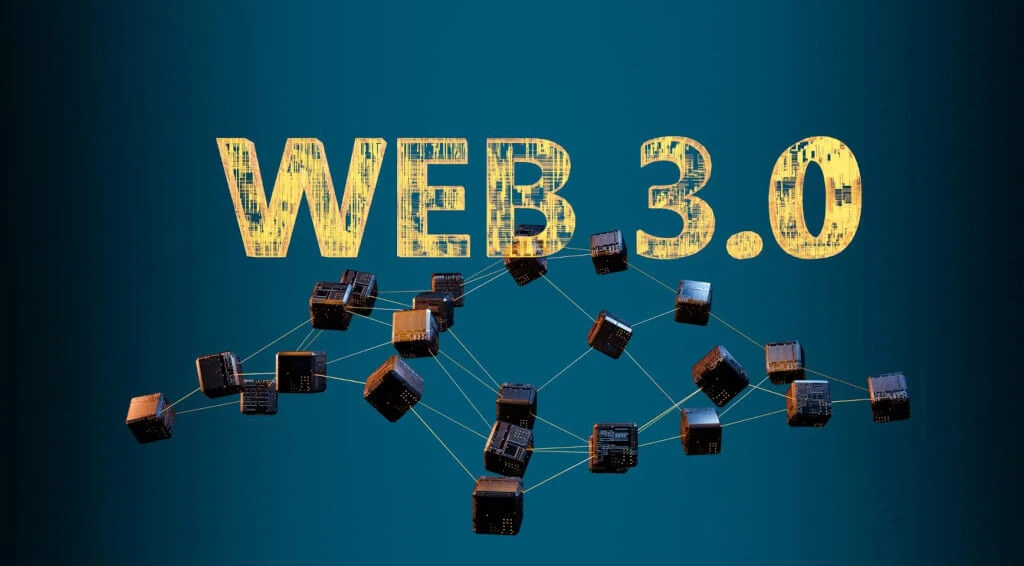Due to its minimal correlation with traditional markets like stock exchanges, investing in rare whiskies has repeatedly proven to be a considerable alternative investment class.
From the start of 2022 to the 9th of December 2022, the RW APEX 1000 index, which follows the performance of 1000 rare whiskey bottles, shows a gain of 8.06%. Historically, the market has also offered substantial returns. There has been a 425% increase in the APEX 1000 index since 2012. Over the same period, the Vintage 50 whiskey Index, which follows the performance of the 50 oldest and finest whiskey bottles, has increased by more than 300%.
The risk, though, is not trivial. whiskey is largely an illiquid market, and counterfeiting is rampant. The whiskey business is constantly on the hunt for new strategies to mitigate the risks associated with the commodity. It turns out that the new web3 technologies are really helpful.
Can Anyone Explain Web3 to Me?
Web3 is an upgraded network that utilizes blockchain technology. It uses decentralized peer-to-peer networks to store information instead of centralized databases. Decentralization eliminates the need for middlemen while transferring authority from a small group of elites to the general populace.
Tokens are the driving force behind the next generation of the World Wide Web. There are two types of tokens in circulation: fungible (cryptocurrencies like Ethereum) and non-fungible (NFTs).
The Significance of NFTs in the Rare Whiskey Collecting
NFT can be exchanged for anything, including digital and physical assets. While most people are only familiar with NFTs in the context of digital art, additional applications include tokenizing actual assets like property, apparel like sneakers and hoodies, and, of course, whiskey.
Created or “minted” NFTs have a unique identity that can be traced back to the original asset. A single bottle of whiskey, for example, can only have one unique identity.
The public blockchain is where NFTs are recorded. This ensures their integrity and openness, as they cannot be changed. We know where their wallets are kept. Because of this, they can be used as proof of ownership in the digital realm. Additionally, all NFT transactions may be viewed in full transparency because of blockchain technology. As a result, fraudulent actions are easier to identify.
The Best Web3 Tools for Mitigating the Most Common Whiskey Investment Pitfalls
Advantage of Investing in Web3 Whiskey: Fake Bottles
The whiskey industry is plagued by rampant counterfeiting and scams. A recent incident that gained widespread media attention featured a con artist who targeted senior citizens via cold calls, promising them significant returns on investments in whiskey. A victim who lost $300,000 reported him to the FBI, leading to his arrest for the $13 million swindle.
Over one hundred bottles of Scotch whiskey were examined in a 2018 investigation by the Scottish Universities Environmental Research Centre (SUERC), and researchers found that almost 40% were fraudulent.

Verify ownership and origin via NFTs. The scientists at SUERC are always looking for new ways to use science to fight counterfeiting. NFT answers help them out as well. They collaborated with Everledger, a blockchain provenance firm, to achieve this goal.
To help its users generate evidence of identification, origin, or possession without the need for coding, Everledger offers a set of low-cost NFT creation tools. The technology makes use of NFC (Near Field Communication) and other intelligent labeling techniques to affix provenance tags to whiskey bottles and NFTs. Chai Vault is another leading blockchain-based whiskey provenance system. Bottles are checked for authenticity by trained experts before being registered indefinitely on the blockchain.
Proof of origin is essential for high-end products like Scotch whiskey, and websites like Everledger and Chai Vault facilitate this. This means that customers can buy bottles with confidence. It benefits everyone involved.
Advantage Web3 Whiskey Investments: Not Enough Money Coming In
Traditional whiskey investments also suffer from a lack of potential profit avenues. The marketplace is illiquid, whiskey bottles need to be stored, which might add extra expenses, and you can only really make money by selling them. The whiskey industry and investors are affected by these developments. Royalties paid to middlemen were eliminated with Web3. Again, this is mutually advantageous.
Directly Addressing the Whiskey Fanatics
Distilleries can collaborate with NFT markets or offer their products straight to consumers through NFT drops. There have been numerous whiskey drops in NFTs during their brief existence. When it comes to producing new collections, whiskey companies typically prefer to team up with NFT marketplaces rather than launch their websites. For instance, NFT whiskey enthusiasts can purchase several editions of Jonny Walker’s Blue Label x VANDYTHEPINK thanks to his partnership with Blockbar. Many whiskey brands currently use Blockbar as their preferred NFT platform. The market introduces new bottles of premium spirits from distilleries including Benriach, Dewar’s, and Glenfiddich.
Whiskey distilleries can benefit from the NFTs’ smart contracts in more ways than one, as they can implement novel royalty models to earn a cut of secondary market sales in addition to primary market sales.
DeFi Possibilities Provide NFT Holders With Additional Benefits
whiskey investors can gain the opportunity to receive extra rewards by purchasing bottles that have been confirmed as belonging to the original owner. Web3 is creating a community where everyone is valued. This is where decentralized financial infrastructure (DeFi) comes in.
Using NFTs as collateral for loans through DeFi enables borrowers to earn interest through NFT staking or yield farming. whiskey NFT holders will soon enjoy the same perks as other investors.
It Offers Strictly Limited Competition
whiskey requires a large investment capital for small investors. To broaden access to whiskey investments, blockchain engineers created novel NFTs. These are fractional NFTs, created by breaking up a whole NFT into smaller parts.
Shares in a firm can be compared to fractional NFTs. They make it possible for people to invest nominal sums. Buying a fractional NFT is like buying a piece of the total asset. The fractional NFT concept is used in the whiskey business to repurpose premium whiskey casks. For example, UniCask sells portions of a Glenrothes 2012 barrel that is scheduled to be bottled in 2032.
There are 100 NFT editions available, and the total net capacity of the cask is around 195L. In other terms, a single Glenrothes NFT represents ownership of roughly 1.95 liters of the entire cask. Casks from the Hanyu and Linkwood distilleries are among those that UniCask has fractionalized.
Investing in Web3
Distilleries may now verify the authenticity of their valuable products thanks to blockchain technology. whiskey enthusiasts and businesses may now find one another in new online markets that can help collectors find authentic bottles of the spirit. Everyone involved benefits from the web3 community’s rewarding culture.

